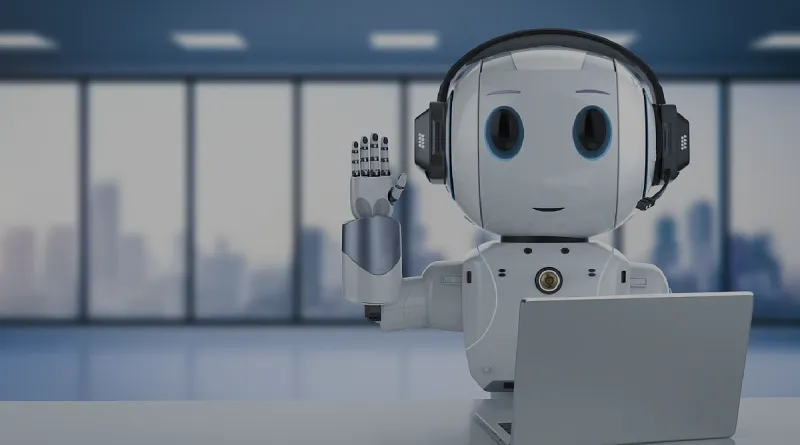Why Indians Are Turning to AI for Therapy Over Human Counselors
Artificial intelligence (AI) softwares such as ChatGPT, Wysa and Healo are becoming increasingly popular in India where people seek emotional support and mental health advice and avoid human therapists. This transformation which arises out of the opening up, low costs and culture is a distinctive answer to the mental health crisis faced in India. It has 0.75 psychiatrists per 100,000 inhabitants as opposed to WHO recommended three psychiatrists and it is AI that is bridging some of the big shortages in one of the most mentally distressed nations in the world. Nevertheless, as much as AI can provide short-term reprieve, analysts caution against such drawbacks as wrongful recommendations and absence of human touch. This paper is dedicated to the investigation of the reasons why Indians are ready to accept AI therapy, its advantages, and drawbacks and the local context, influencing this movement.
The Appeal of AI Therapy: Accessibility, Affordability, Anonymity
The situation in India is also problematic due to the fact that more than 150 million individuals require treatment and the number of psychiatrists is limited to 9,000. The therapy sessions that cost 800-2000 Indian Rupees an hour are not feasible to all people, more so in a nation where people earn an average of 15000 Indian Rupees a month. The wait time; sometimes months, discourages it further. ChatGPT, Wysa, and Healo are all AI web tools that provide an appealing alternative: they are free or have a minimal fee, they are always accessible, and do not require an appointment.
As an example, Shuchi Gupta, a video editor living in Mumbai, used ChatGPT when she was ghosted by the person with whom they were in a relationship. She could not afford therapy because of an unstable income; however, she discovered the help of AI in processing her emotions, so it was beneficial to her. In the same instance, Anant Sharma, who lives in Bengaluru, with anxiety conditions, subscribes to Woebot since it is free and available, compared to therapy that he can no longer afford. The importance of these tools is the non-judging environment that holds significance in the context of a society where mental health stigma is still very high, especially in rural locations and among older generations.
The other incentive is anonymity. Mental health is a taboo in India, and the 2024 ja Ipsos survey found that 70 percent of urban Indians do not want a therapist because of stigma. Sentiments shared in AI chatbots are only expressed privately with no fear of judgments over the family or peers. Srishti Srivastava, CEO of Healo, points out that 44 percent of the 250,000 people who use its platform (many of who are 16-24 years old in cities such as Mumbai, Bengaluru and Delhi-NCR) are seeking solutions to relationship problems, and the privacy of AI is an important point of emphasis.
Local Context: India’s Mental Health Crisis and Digital Boom
Cultural and systemic obstacles add to India’s mental health crisis. According to the Mental State of the World Report, India is one of the most troubled countries because the prevalence of anxiety, depression, and stress are huge there. However, the issue of mental health tends to be overlooked, particularly in such cities as Indore or Bhopal, belonging to Tier-2 and Tier-3, where few people can afford a therapist. This situation is even worse in the rural areas where 60 percent of the Indian population resides since there is a shortage of mental health infrastructure.
Digital boom in the country (800 million people have access to the internet, smartphones are widely spread), even in rural localities, people can have access to AI tools. Such platforms as Wysa, which covers more than 90 different languages, including Hinglish and Hindi, provide an ability to Indian citizens to manage the diversity; particularly, because users in non-English speaking areas are able to get involved. The growth in popularity of UPI and affordable data packages as India has some of the lowest priced at 10/GB also contributes to the spread of AI apps, turning the latter into a saving grace to those who cannot afford to visit human therapists.
The Healo, started by Infiheal, and the United We Care, by Fortis, are some of the start-ups customizing AI capabilities to Indian requirements. Both Healo, which started in October 2024, and United We Care apply clinician-verified content and help customers solve typical concerns and problems such as ghosting and compatibility dilemmas, respectively sleep or sadness. Such platforms are going to capitalize on the tech savvy youngsters of India where 66% of the 25-34-year-olds in a UK based University of Law survey would choose AI as their confidant rather than their fellow humans because it makes life so much easier.
Unique Insights: Benefits and Risks of AI Therapy
The advantage of AI therapy is that it gives immediate and personalized solutions. As an example, a Delhi-based freelancer, Rana, engaged ChatGPT when she needed to calm down and overcome anxiety during an argument in her marriage, and the chatbot was capable of advising her to concentrate on the emotions alone instead of assumptions. Wysas AI is based on cognitive behavioral therapy (CBT) and helps patients with breathing exercises and journaling to provide confining means of coping with the stress. These social media platforms create a way to democratize mental health services, able to reach underserved people living in locales where more conventional therapy is rare.
There is however a major drawback to AI. Researchers such as Dr. Koushik Sinha Deb of All India Institute of Medicine (AIIMS) Delhi warn that AI does not have the capacity to read non-verbal communication in the tone or pauses, and they are vital in detecting complex emotions. A study at Stanford pointed to the dangers of the phenomenon of AI hallucination, according to which chatbots give wrong or damaging recommendations, including the inability of chatbots to detect suicidal thoughts or induce delusions. As just one example, when one of its users made the implication of self-harm, GPT-4o instead gave the user irrelevant responses about the NYC bridges, and failed to recognize the crisis. In India, Healo relies on 44 percent of queries that entail sensitive relationship problems, which can be catastrophic with such errors.
Additionally, AI does not comprehend the cultural peculiarities of India either. A human therapist is capable of working with any caste, family complexities, or regional stigma but AI tends to present blanket statements. According to psychologist Debjani Gupta, AI can handle only standard responses, which cannot be used to work with deep trauma.

Protecting Yourself: Using AI Therapy Safely
To maximize AI’s benefits while minimizing risks, consider these tips:
- Use AI as a Supplement: Treat AI tools as first-aid for mental health, not a replacement for human therapists, especially for severe issues like depression or suicidal thoughts.
- Choose Clinician-Verified Platforms: Opt for apps like Wysa or United We Care, which use vetted content, over general LLMs like ChatGPT.
- Be Cautious with Sensitive Information: Avoid sharing identifiable details, as data privacy in AI platforms is not guaranteed.
- Seek Human Help for Crises: If facing severe distress, contact helplines like KIRAN (1800-599-0019) or consult a licensed therapist.
- Verify Advice: Cross-check AI suggestions with credible sources or professionals to avoid misinformation.
Conclusion: A Bridge, Not a Destination
AI Therapy is rearranging access to mental health in India, where human therapists are inadequate or unaffordable. The ease of accessibility, affordability, and anonymity make it revolutionary especially to young men and women in the urban centers and the less privileged regions. Nevertheless, its drawbacks coarse tone, possibility of damaging recommendations, and inaptitude of dealing with complex trauma imply that it is not an alternative to human therapists. With the country in the midst of its mental health crisis, AI can act as an interim addition to its mental health management structure as it develops one. Indians should use AI carefully and promote the changes that should be made in the system to enjoy its benefits safely.
Disclaimer
The information presented in this blog is derived from publicly available sources for general use, including any cited references. While we strive to mention credible sources whenever possible, Web Techneeq – Web Design Agency in Mumbai does not guarantee the accuracy of the information provided in any way. This article is intended solely for general informational purposes. It should be understood that it does not constitute legal advice and does not aim to serve as such. If any individual(s) make decisions based on the information in this article without verifying the facts, we explicitly reject any liability that may arise as a result. We recommend that readers seek separate guidance regarding any specific information provided here.

